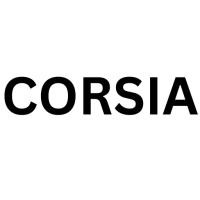Summary
Cut through the green tape
We don't push agendas. At Net Zero Compare, we cut through the hype and fear to deliver the straightforward facts you need for making informed decisions on green products and services. Whether motivated by compliance, customer demands, or a real passion for the environment, you’re welcome here. We provide reliable information—why you seek it is not our concern.
Details
- Global
Deep dive
Background
The Carbon Offsetting and Reduction Scheme for International Aviation (CORSIA), developed by the International Civil Aviation Organization (ICAO), is a global market-based measure aimed at lowering carbon emissions from international aviation. Established by the ICAO Assembly Resolution A39-3 in October 2016, CORSIA is the first global market-based emissions control measure that applies to a sector. The scheme aims to stabilize GHG emissions from international aviation at 2020 levels by requiring airlines to offset any emissions increase above this baseline through the purchase of carbon credits. The implementing framework for CORSIA is provided in the ICAO document Annex 16, Volume IV: Carbon Offsetting and Reduction Scheme for International Aviation (CORSIA), which details the technical standards and procedures for its carbon emissions monitoring, reporting, and verification requirements, eligibility criteria for carbon offset programs, and other aspects of the scheme. CORSIA is being implemented in phases, starting with a voluntary pilot (2021–2023) and first phase (2024–2026), followed by a second phase (2027–2035), under which participation by ICAO member countries (with some exceptions) is mandatory. CORSIA complements other ICAO emissions tracking initiatives like the Carbon Emissions Calculator which estimates the carbon emissions from air travel for specific flight
Requirements
Under CORSIA's Monitoring, Reporting and Verification (MRV) provisions, airline operators are required to annually submit carbon emissions data from international flights. Airlines are required to monitor fuel consumption for each flight to accurately calculate their carbon emissions, using one of the five approved fuel use monitoring methods. In specific cases, operators may qualify for simplified monitoring and can estimate their emissions using the CO₂ Estimation and Reporting Tool (CERT) developed by the ICAO to facilitate the implementation of CORSIA. All carbon emissions data must undergo third-party verification. Airlines are to submit their verified carbon emissions report to their respective national authorities for onward transmission to ICAO using approved templates and procedures. In 2025, airlines are expected to submit their verified carbon emissions data by 30 April 2025.
Affected airlines
CORSIA's Monitoring, Reporting and Verification (MRV) requirements apply to airline operators whose annual CO2 emissions exceed 10,000 Tonnes from operating aircraft with a maximum certificated take-off mass exceeding 5,700 kg on international flights. MRV requirements do not apply to humanitarian, medical, or firefighting flights. All airline operators conducting international flights are required to monitor, report and verify CO2 emissions from these flights from 1 January 2019 until 31 December 2035.
Penalties for noncompliance
Noncompliance with CORSIA’s requirements can result in significant consequences for airlines. While ICAO has not established direct penalties, national authorities in participating countries are responsible for enforcement. Penalties may include fines, suspension of operating licenses, or other regulatory actions, depending on the country’s legal provisions. In the UK, for example, where CORSIA has been transposed into national law under the Air Navigation Order 2021, airline operators face a civil penalty of £20,000 for failure to apply or revise an application for approval of their Emissions Monitoring Plan. A civil penalty of £20,000 also applies to the failure to monitor and report emissions in accordance with the Emissions Monitoring Plan. Moreover, airlines are liable to a civil penalty of £50,000 if they provide false or misleading information in an emissions report.


